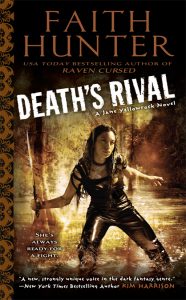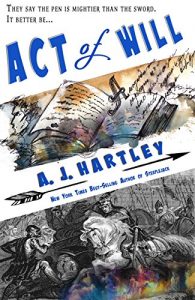So, at the risk of going full-on meta, I would like to post today about blogging — the value and costs of maintaining a blog, the secrets of keeping the blog fresh for you and for your readers.
When I got into the writing business, personal and professional websites were just starting to pop up. I remember my editor asking me at one point, shortly before the release of my first novel, if I had a website. He was pleased when I told him I did — some of his writers had been resistant. I also remember people in my little town being more impressed that I had a website than with the fact that I was about to be published for the first time.
“My first book’s about to come out.”
“Nice. Good for you.”
“And I have a website.”
“Oooooohhhhhh!!! You have a website??!!”
Seriously.
A few years later, weblogs became trendy, and my editor, agent, and publicist were all over me to start blogging. Soon everyone had a blog, and drawing attention to any one particular blog proved ever more difficult. But the accepted industry wisdom stated that writers who wanted to be successful, who wanted to develop and keep a substantial fanbase, needed to blog. Putting out books and publicizing them on our websites was no longer enough. Now we needed to generate original content on a regular — some said daily! — basis.
This lasted about until Facebook became the thing late in the first decade of the new millennium. With the advent of social media, blogs started to appear cumbersome, overly formal, and not nearly immediate enough.
And yet today, with the age of social media in full swing and not going anywhere anytime soon, some of the wisdom generated in those early years of web access remain true. A writer can’t survive without a website. And blogging remains a viable way to reach readers.
After allowing my blog to lag for a time, I have recommitted myself to it this year, and I’ve been pleased with the results. I didn’t want to post everyday. That would have been overwhelming and it would have quickly turned blogging into a burden, a commitment I resented. I didn’t want that. But I wanted to generate content, for my readers and for myself. I wanted to have a structured schedule that would keep me on task and that would bring readers to my site on a regular basis. But, I wondered, what should I write about?
Even before Covid-19 and the protests that have swept across the country, I had a sense that this would be a year worth chronicling. The election alone promised to make it such. And so I knew that one day a week, I wanted to have the freedom to write about whatever I chose.
I also was looking forward to a couple of writing events this year (the SAGA conference in early March, and another in August that was cancelled due to the pandemic) and so I thought it would make sense for me to offer writing advice once a week. A lot of my social media followers are launching writing careers of their own. This gave me a chance to pay it forward by helping them.
And finally, I had lamented last year that I didn’t pursue my passion for photography with enough discipline. With my Photo Friday feature, I hoped to force myself to pull out my camera more, to demand of myself that I do this thing I love, and share the results publicly.
I’m glad I did all of it. I have been able to chronicle this remarkable year, for myself and for my readers. I have put together what I think is a nice collection of writing-tip posts. And so far I have a good set of photos for the year. Moreover, traffic at my website has gone up between 100 and 200 percent since 2020 began. Not bad.
So, is blogging for you?
Let me start with this: The most important thing new writers can do to boost their careers is write their stories and books. If your time is limited, if you’re already struggling to find opportunities to work on the material you wish to publish, this might not be the time to start blogging. Concentrate on your writing and on your social media platforms, which ought to be far less time consuming.
I don’t recommend blogging for the sake of blogging. I spend a substantial amount of time on the posts I write, and already I’m thinking about ways I can change things up for next year. I want to keep the experience fresh. As I’ve said, I generate content for my readers, but I also committed to this for myself. I wanted to do it. I’ve enjoyed doing it. But it’s a lot of work. I feel the pressure of having to generate new content for three posts a week. Maintaining the blog in this way has not impacted my fiction writing productivity. Not yet. I can see, though, how it might.
One of the keys to successful blogging is posting something original on a regular and predictable basis. My readers know at this point to expect posts on Mondays, Wednesdays, and Fridays. Anything I offer beyond that is gravy. But I wouldn’t want to miss a day and let down those who follow my posts. If you want to blog, you should find a schedule that works for you. Even if you post only once a week, doing so regularly, and drawing readers’ attention to that weekly post, could be enough to gain some traffic at your site.
And, of course, that is the goal. I want readers to enjoy my posts. But I also want them at my site, where they can explore a bit and learn about my books. This is, among other things, a business venture.
I have also found it helpful to blog thematically. A number of my readers look forward to my writing tips. Others like the photos, and still others tune in for whatever rant I might put up on Mondays. My readers know what to expect, which, I believe, keeps them coming back. And, since I know what’s expected of me for each post, I find the essays easier to write. It’s no coincidence that week in and week out, the Monday posts are the most challenging to craft, because my “topic” for them is relatively amorphous.
In the end, only you can decide if maintaining a regular blog makes sense. Don’t let yourself be pressured into it by others who say you must do it to build an audience. Plenty of authors don’t blog, and many others only do so occasionally. The most important questions to ask yourself are, 1) Do I want to do this? 2) Do I have time to do this without sacrificing my productivity? And 3) Do I have something to say that will keep my readers and me engaged?
Best of luck. And keep writing!









 I believe my action scenes are pretty effective, and, actually, I would say the same about my sex scenes. But that wasn’t always the case. In the first draft of my very first novel, Children of Amarid, I wrote a sex scene that my editor tore apart. And with good reason. While the rest of the narrative worked pretty well, the sex scene felt completely staged and out of character. And the reason was quite simple: For that one encounter, I forgot about my characters’ points of view and tried to write a sex scene that felt, well, sexy. That didn’t work, because my characters were young and in love, but also inexperienced and still a little awkward with each other. None of that came through in the writing.
I believe my action scenes are pretty effective, and, actually, I would say the same about my sex scenes. But that wasn’t always the case. In the first draft of my very first novel, Children of Amarid, I wrote a sex scene that my editor tore apart. And with good reason. While the rest of the narrative worked pretty well, the sex scene felt completely staged and out of character. And the reason was quite simple: For that one encounter, I forgot about my characters’ points of view and tried to write a sex scene that felt, well, sexy. That didn’t work, because my characters were young and in love, but also inexperienced and still a little awkward with each other. None of that came through in the writing. In the same way, action scenes – fight scenes, battle scenes, violent scenes; whatever you want to call them – also hinge on the qualities, histories, experiences, and emotions of our point of view characters. A seasoned fighter, someone who makes their living in a violent world or who was brought up to be a warrior, is going to experience violence quite differently from, well, someone like me, who has little knowledge of fighting technique and scant history with violence and bloodshed. The practiced fighter’s point of view might sound almost clinical – this person will know how to control emotion, how to draw upon skills and observations learned over years of training. The novice’s point of view should come off as far more desperate, fearful, overwhelmed by the frenzy of violence in which they find themselves. Again, point of view is all. One is not necessarily more exciting to read than the other – think of the battle scenes in Faith Hunter’s thrilling, New York Times Bestselling Jane Yellowrock books and in A.J. Hartley’s wonderful Will Hawthorne novels, which are not only entertaining but also a master class in writing voice. Jane is a warrior; Will is SO not.. The scenes in both make for compelling reading, but they couldn’t be more different.
In the same way, action scenes – fight scenes, battle scenes, violent scenes; whatever you want to call them – also hinge on the qualities, histories, experiences, and emotions of our point of view characters. A seasoned fighter, someone who makes their living in a violent world or who was brought up to be a warrior, is going to experience violence quite differently from, well, someone like me, who has little knowledge of fighting technique and scant history with violence and bloodshed. The practiced fighter’s point of view might sound almost clinical – this person will know how to control emotion, how to draw upon skills and observations learned over years of training. The novice’s point of view should come off as far more desperate, fearful, overwhelmed by the frenzy of violence in which they find themselves. Again, point of view is all. One is not necessarily more exciting to read than the other – think of the battle scenes in Faith Hunter’s thrilling, New York Times Bestselling Jane Yellowrock books and in A.J. Hartley’s wonderful Will Hawthorne novels, which are not only entertaining but also a master class in writing voice. Jane is a warrior; Will is SO not.. The scenes in both make for compelling reading, but they couldn’t be more different.

